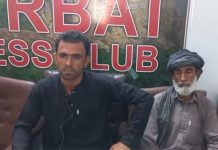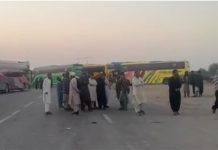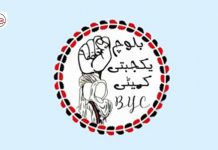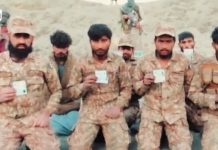Pakistan-based journalists have said that they are being silenced through various means, with scribes being blindfolded and beaten up mercilessly. The Committee to Protect Journalists (CPJ), an independent press freedom advocacy organisation, has taken note of the grim scenario in the country.
The CPJ’s report on the state of press freedom in Pakistan, titled, ‘Acts of Intimidation’, will be released on September 12.
The country’s judiciary, in recent months, has remained largely silent amid growing concerns of attempting to censor the media.
Zohra Yusuf of the Human Rights Commission of Pakistan was quoted by CPJ as saying that Pakistan’s journalists are “between a rock and a hard place,” when it comes to the military and the judiciary.
She added that although the judiciary has been advocating for a stronger democratic system, there is a perception among the Pakistani citizens that both the judiciary and the military “seem to be on the same page on certain aspects of our democracy.”
Likewise, some journalists and analysts have expressed concerns that the inaction by the judiciary to deal with the silencing of the press, led to a climate of fear and self-censorship.
Another journalist, who was also brutally attacked, added, “It was not a matter of merely an attack on me, it was a message to the whole journalist community.”
“Journalists are silent. Slowly journalism is dying out in Pakistan,” a woman journalist told the CPJ.
Prior to the general elections on July 25, CPJ had written a letter to the then caretaker Prime Minister of Pakistan, Justice (retd.) Nasir-ul-Mulk, calling for “an open media environment that allowed Pakistanis to fully enjoy their constitutional right of access to information,” while also ensuring that the polls were free and transparent.
The press freedom organisation has also documented how journalists in the country were abducted or attacked for criticising the military or top authorities, the curtailing of the distribution of two of Pakistan’s largest media outlets, Geo TV and The Dawn and ISPR Director General, Major General Asif Ghafoor accusing scribes of sharing anti-state and anti-military propaganda on their respective social media accounts.
The CPJ also chided the judiciary for failing to take cognisance on the above issues and take strict action against those interfering in the press freedom of Pakistan.
Owais Ali, the founder of the Pakistan Press Foundation, asserted that a free media was vital for free and fair elections in a country. “Whatever the political issues are, they need to be discussed. These include criticisms of the judiciary and the military in the forthcoming elections. The media should not have a price to pay simply for reporting what is being discussed by the politicians and political parties,” he said.
The country’s media regulator, the Pakistan Electronic Media Regulatory Authority, had issued a statement in July asking news channels not to air any statements “by political leadership containing defamatory and derogatory content targeting various state institutions, specifically judiciary and armed forces.”
Reacting to the same, the CPJ in a statement condemned the move and urged the interim government “to take necessary measures to guarantee journalists’ ability to work without fear of intimidation or reprisal.”
“These incidents foster fear among journalists that prevents them from working effectively. The media should not be punished for reporting statements from politicians or political parties, even when they are controversial,” it added.
According to the data provided by CPJ, around 60 journalists were killed in Pakistan since 1992, out of which 30 were murdered with impunity.
Many prominent Pakistani journalists such as Gul Bukhari, Asad Kharal and Taha Siddiqui have been attacked, while other members of the media fraternity were also threatened. Also, Marvi Simred’s Islamabad residence was ransacked in June, with thieves decamping with laptops, travel documents, and other valuables.
Pakistan is consistently ranked low in United Nation’s Press Freedom Index; the country is currently ranked 139 out of 180 countries.






























